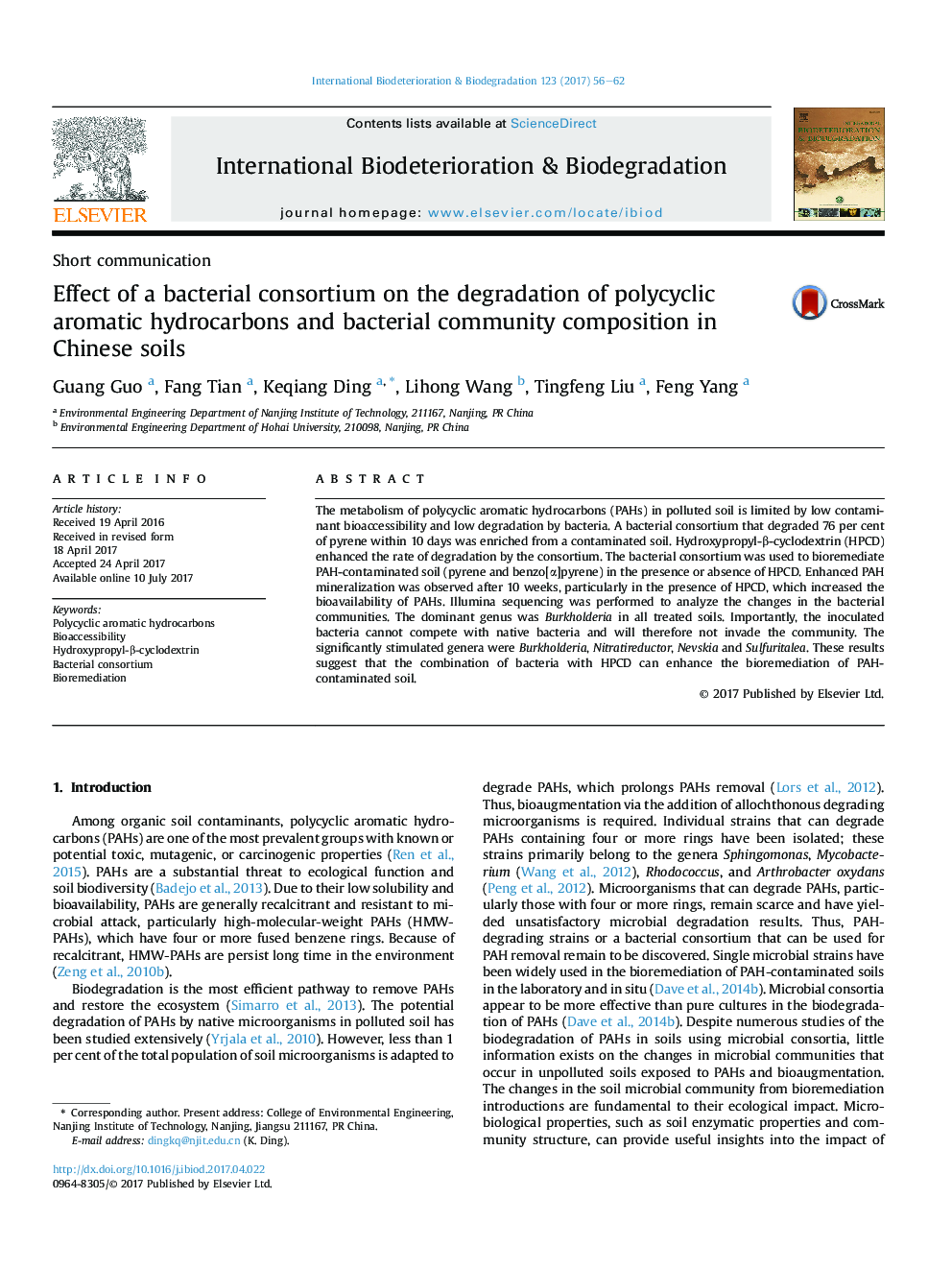| Article ID | Journal | Published Year | Pages | File Type |
|---|---|---|---|---|
| 5740251 | International Biodeterioration & Biodegradation | 2017 | 7 Pages |
â¢A bacterial consortium that degraded pyrene was enriched.â¢The consortium could bioremediate PAH-contaminated soil in the presence of HPCD.â¢HPCD increased the bioavailability of PAHs.â¢The changes of the bacterial communities were studied.â¢Some bacteria were first reported that participated in PAHs degradation.
The metabolism of polycyclic aromatic hydrocarbons (PAHs) in polluted soil is limited by low contaminant bioaccessibility and low degradation by bacteria. A bacterial consortium that degraded 76 per cent of pyrene within 10 days was enriched from a contaminated soil. Hydroxypropyl-β-cyclodextrin (HPCD) enhanced the rate of degradation by the consortium. The bacterial consortium was used to bioremediate PAH-contaminated soil (pyrene and benzo[α]pyrene) in the presence or absence of HPCD. Enhanced PAH mineralization was observed after 10 weeks, particularly in the presence of HPCD, which increased the bioavailability of PAHs. Illumina sequencing was performed to analyze the changes in the bacterial communities. The dominant genus was Burkholderia in all treated soils. Importantly, the inoculated bacteria cannot compete with native bacteria and will therefore not invade the community. The significantly stimulated genera were Burkholderia, Nitratireductor, Nevskia and Sulfuritalea. These results suggest that the combination of bacteria with HPCD can enhance the bioremediation of PAH-contaminated soil.
